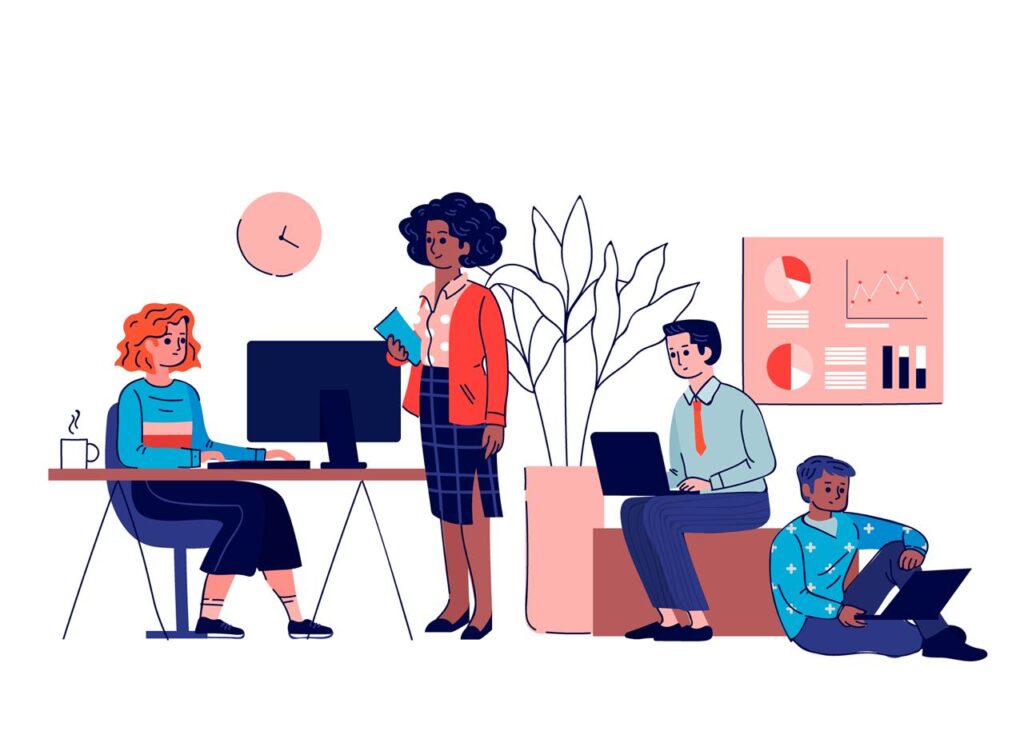Is DEI Still Going Strong in 2025?
Employers, Employment, Hiring, News / 25 June 2025
Over the past two decades, DEI has steadily moved up the agenda for UK employers. While it was initially a response to equality legislation, DEI is now seen by many organisations as a key way to attract and retain talent, improve workplace culture, and reflect the diverse society we live in.
But what exactly does DEI mean?
- Diversity is about recognising and valuing the differences people bring to work. That might be age, gender, race, disability, or sexual orientation.
- Equity focuses on fairness, making sure that everyone has access to the same opportunities and support.
- Inclusion is about creating a culture where every employee feels welcome, respected, and able to fully contribute.
Together, these principles aim to improve representation and create workplaces where everyone can thrive.

While the global response to the murder of George Floyd drove a surge in DEI uptake in 2020, it wasn’t the only factor. The COVID-19 pandemic exposed deep social and economic inequalities, many of these evident in the workplace. Employees from underrepresented or marginalised groups often faced greater health risks, financial insecurity, or barriers to remote working. Expectations from employees, consumers, and investors began to shift too. People wanted to see real action on fairness and inclusion. Mental health, workplace culture, and leadership accountability also moved up the agenda. For many UK organisations, DEI was no longer just a compliance issue. It was essential to safeguard corporate reputation and long-term success.
Five years on, the conversation is shifting again as many businesses adapt their DEI approach or scale back their commitment. So is DEI still going strong or is it starting to lose momentum?
Is DEI Evolving?
While it might seem that DEI is losing support in certain parts of the world, many UK organisations are refining how they approach it. Rather than being a standalone HR initiative, DEI is becoming central to how businesses operate.
Here’s how DEI is evolving:
- A change in terminology: Some employers are using EDI or simply DI, instead of DEI.
- An element of business strategy: DEI is now part of recruitment practices, leadership development, supplier diversity, and broader business goals.
- Focus on accountability: Companies have moved from DEI pledges to tracking progress and reporting.
- Wider definition of inclusion: Beyond the protected characteristics listed in the Equality Act, there’s been increased focus on other factors such as neurodiversity, socioeconomic background, and the effects of peri and menopause.
- Emphasis on belonging: Inclusion efforts now concentrate on creating a culture of psychological safety, respect, and participation.
- Recognition of overlapping identity aspects: Companies are recognising that we are more than one characteristic, such as gender or age. Each person is instead a unique mix of characteristics. DEI business strategies are changing to reflect this.
So yes, DEI is evolving in the UK. Instead of fading away, it is adapting and maturing.
DEI in the UK Workplace
As the business approach to DEI continues to evolve in the UK, how does it affect both employers and employees?
Employers
- Data driven decisions: While gender pay gap reporting is a legal requirement for larger UK businesses, many employers of all sizes are now collecting and analysing workforce diversity data that goes beyond this. Some employers are even publishing their findings to build trust with employees, customers, and shareholders.
- Inclusive recruitment practices: Inclusive hiring is on the rise. This includes anonymised CVs, reviewing job descriptions and interview processes to reduce bias, and improving accessibility.
- Leadership and accountability: Leaders are expected to champion DEI, with many businesses creating internal networks and DEI steering groups, and appointing dedicated DEI officers.
Employees
- Rising expectations: Employees demand more than a nod to DEI, especially those from the younger generations. They expect fair treatment, an inclusive culture, and opportunities for career progression. Many employees are willing to challenge their employers to meet these expectations and leave companies that fall short.
- The link between DEI and employee wellbeing: Flexible working, mental health support, and accommodations for neurodivergence or caring responsibilities are now seen as inclusion essentials, not perks.
- Employees want to have their say at work: Employee resource groups, surveys, and inclusions forums offer employees the chance to share their experiences and influence workplace culture. Having a voice at work improves employee engagement and a sense of belonging.
How Does DEI in the UK Compare to the Rest of the World?
DEI is adapting and maturing in the UK, but what’s happening in other countries?
United States
Certain US companies have reassessed or scaled back their DEI efforts in response to legal change, political pressure, and a shift in public opinion. Well-known brands like Target, Walmart, Meta, and McDonalds have either rebranded their DEI teams, dropped diversity targets, or removed DEI language from corporate documentation and public statements. An example of this is the use of terms like ‘inclusive workplace’ instead of directly mentioning DEI. However, many organisations remain committed to creating fair and inclusive work environments.
Europe
DEI remains important for many employers in Europe, although priorities vary between countries. Generally, European businesses include DEI within their approach to social responsibility and workplace wellbeing. Countries like Germany, France, and the Netherlands have introduced or strengthened legislation that promotes pay transparency, representation, and inclusive hiring.
Globally
DEI remains a priority for businesses worldwide, but there are variations depending on cultural, legal, and economic factors. In countries like Australia and Canada, DEI is a key element of workplace policies and legal compliance. Employers are expected to actively promote diversity and fair opportunities for all. In Asia and the Middle East, the adoption of DEI practices is still developing. However, multinational companies in these regions are generally working to align their DEI policies across all the countries they operate in.
Despite differences in how DEI is approached, most businesses around the world appear to recognise its value.
Wrapping it up
So is DEI still going strong? In the UK, Europe, Australia, and other parts of the world, DEI is seen as a key element of business strategy and legal compliance. In the US, the approach to DEI is less clear cut as legal and political change complicate the situation. However, many US businesses have simply adapted their DEI practices in response.
Globally, many companies are aware of the benefits that DEI brings and are willing to include DEI in their business strategy to improve their work environments, attract and retain employees, appeal to investors, and comply with the law. DEI is evolving and maturing but yes, it is definitely still going strong.



